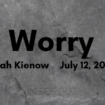Sheep, goats, and Wal-Mart. Social Action from a small town perspective.
I know what you’re thinking, nothing says “small town” like sheep, goats, and Wal-Mart. But it’s not what it seems. Actually, this will be the basis for our look into the hottest topic facing modern Christianity at this moment – the idea, principles, and responsibility of social action. Jesus of Nazareth didn’t come to start a new religion, but He did start a revolution – a physical, emotional, social, and spiritual revolution. To not actively engage in this revolution in it’s entirety, and only choose the spiritual, is to negate His whole reason for coming. After all, He said it best: 18 “The Spirit of the Lord is upon Me, because He has anointed Me to preach the gospel to the poor; He has sent Me to heal the brokenhearted, to proclaim liberty to the captives and recovery of sight to the blind, to set at liberty those who are oppressed; 21 And He began to say to them, “Today this Scripture is fulfilled in your hearing” (Luke 4:18, 21 NIV).
He proclaimed that day in the synagogue that he was beginning a revolution to include the poor, the brokenhearted, captives, sick people, and the oppressed of the world. Sounds like Christ was a small southern Judea town social activist.
So, first, the sheep and goats:
Then all the nations will be arranged before him and he will sort the people out, much as a shepherd sorts out sheep and goats, putting sheep to his right and goats to his left. “Then the King will say to those on his right, ‘Enter, you who are blessed by my Father! Take what’s coming to you in this kingdom. It’s been ready for you since the world’s foundation. And here’s why: I was hungry and you fed me, I was thirsty and you gave me a drink, I was homeless and you gave me a room, I was shivering and you gave me clothes, I was sick and you stopped to visit, I was in prison and you came to me.’ “Then those ‘sheep’ are going to say, ‘Master, what are you talking about? When did we ever see you hungry and feed you, thirsty and give you a drink? And when did we ever see you sick or in prison and come to you?’ Then the King will say, ‘I’m telling the solemn truth: Whenever you did one of these things to someone overlooked or ignored, that was me – you did it to me.’ “Then he will turn to the ‘goats,’ the ones on his left, and say, ‘Get out, worthless goats! You’re good for nothing but the fires of hell. And why? Because – I was hungry and you gave me no meal, I was thirsty and you gave me no drink, I was homeless and you gave me no bed, I was shivering and you gave me no clothes, Sick and in prison, and you never visited.’ “Then those ‘goats’ are going to say, ‘Master, what are you talking about? When did we ever see you hungry or thirsty or homeless or shivering or sick or in prison and didn’t help?’ “He will answer them, ‘I’m telling the solemn truth: Whenever you failed to do one of these things to someone who was being overlooked or ignored, that was me – you failed to do it to me.’ “Then those ‘goats’ will be herded to their eternal doom, but the ‘sheep’ to their eternal reward” (Matthew 25:32-46 The Message).
Despite popular thought, dividing the sheep and goats had nothing to do with salvation, nothing about obeying the Gospel, but it had everything to do with this important topic of social action. It had to do with feeding the hungry, visiting the sick, clothing and providing shelter to those who needed it – it wasn’t about joining the church, it was about being the church.
The idea is simple, there are people everywhere (even in your small, rural town) who are hurting, and are in need. They are waiting on you to do your part in being the sheep the Good Shepherd has called us to be. Social “quietism” is accepting the current evil and injustice of the world as ‘signs of the times’, thus absolving us of our social responsibility.
The way is simple. Take Wal-Mart. Every small town has one. It’s our mall, our theme park, our late night, push-a-friend-in-a-cart-around-the-clothing-dept youth group night out place. Why is it that this icon of the small town has taken the lead in the area of social action, while the Pentecostal teenagers sit back, happy with ‘good church’?
Wal-Mart’s “Good. Works.” program supports projects like the Military Families Outreach Project and the Salvation Army Red Kettle program (that’s the thing you passed by at the front door on your way into Wal-Mart to do the ‘push your friend around’ thing). And all the while, Pentecostal students are content with the excuses of “no one needs anything here”, or, “not in my town”.
It’s in your town and it’s not Wal-Mart’s responsibility to help. It’s yours, ours.
Here are some ideas to get you started:
Christmas gifts for less-fortunate families – every small town’s got them Our youth group just raised over $4,000 for Light Your World this Christmas.
Give Thanksgiving turkeys to seniors with a limited income. (Are you really telling me there are no retired people in your small town?)
School supplies for children and families who won’t go back to school in August with new things (think of how you’d feel).
Supporting global projects like World Vision – you don’t have to go to Africa to help (it’s a dollar a day).
Organizing the March for Life campaign in your town to help offer mothers an option other than abortion (despite the ideas of small towns, not talking about it doesn’t make it go away).
These are the starting points, not the end. Needs really do exist in your small town. And it genuinely is your responsibility to carry on the social revolution Jesus began. After all, it could be the deciding factor between the Pentecostals, sheep, goats, and Wal-Mart.






